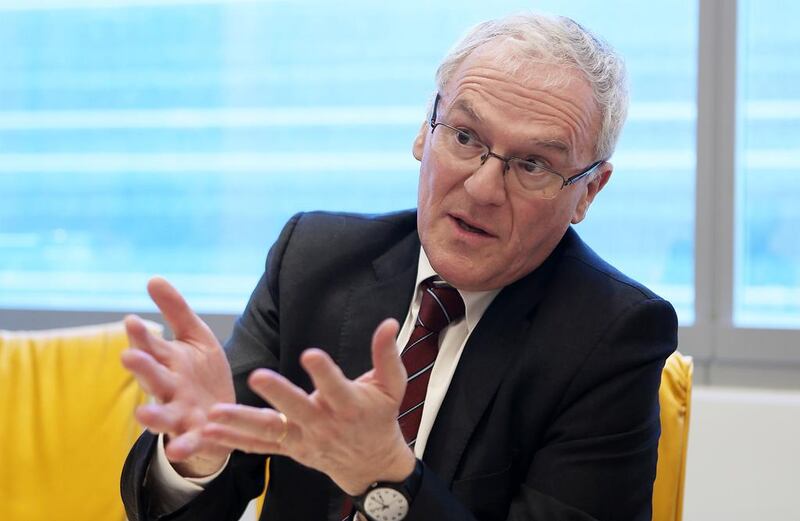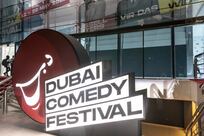The French utility EDF, Europe’s biggest power producer, is looking to acquire gas, solar, wind and nuclear assets in the Middle East, to capitalise on the region’s “demographic growth”, the group’s chief executive said.
"The energy sector is going through three major trends – deregulation, new technology and an energy transition," Jean-Bernard Levy told The National. And the opening of the Middle East markets through independent power producer (IPP) projects allows for more private sector involvement.
Electricity demand has tapered off in Europe, but the Middle East is an emerging market that will see annual investments for new power projects totalling about US$15 billion over the next decade, with an expected increase to $24bn annually after 2030, according to the Paris-based watchdog, International Energy Agency.
EDF’s main focus will be on renewable energy and nuclear power projects, but Mr Levy said the company was also looking at gas-based IPP opportunities in the region. “When we look at new capacity, we spend the same amount of money in building new megawatts in nuclear power and renewables,” he said.
Saudi Arabia and the UAE are expected to be the big players in the nuclear power and renewables space. The UAE is building the region’s first nuclear reactors, while Saudi Arabia is mulling that option. The UAE plans to generate 50 per cent of its power from clean energy by 2050 while Saudi Arabia is currently pushing bids for wind and solar totalling 700MW.
In Saudi Arabia, plans to split up the state-owned utility Saudi Electricity Co (SEC), the kingdom’s biggest power producer, into different assets for sale to improve efficiency is also generating interest from various local and international companies.
EDF expects to see growth rates in renewable energy projects globally, excluding hydropower, between 20 and 25 gigawatts, representing double digit compound annual growth rates until 2030.
It started realising its regional ambitions on Wednesday, by joining Abu Dhabi’s Masdar for the 800 megawatt solar photovoltaic project in Dubai’s $14bn Mohammed bin Rashid Al Maktoum solar park. EDF and Masdar will be partners in other projects, including bidding as a consortium for the 200MW fourth phase of the park, which features concentrated solar power.
Mr Levy said: “We have a solid relationship with Masdar and it’s one to be developed and grown for the larger Mena region.”
The focus on the region is an effort to diversify the company’s portfolio, but cash flow issues remain a problem. “The company is still focusing a lot on investing in nuclear power in developed countries, which has a negative impact over the mid-term as flat demand and overcapacities are not supportive,” said Juan Camilo Rodriguez, an analyst for the Paris-based equity research firm Alpha Value.
Nuclear makes up more than 55 per cent of its portfolio. “This is negative in a low price environment given that nuclear is baseload and is hedged normally one to two years in advance,” said Mr Rodriguez, adding that prices are forecast to stay low until 2020.
With a squeeze on capital flows, the company targeted a reduction in growth investments, which led to a 34 per cent reduction in EDF’s total investments in 2015 and 20 per cent last year.
“Overall investment budget would be cut a further 11 per cent, to €10.5bn [Dh41.57bn] by 2018 from €11.8bn last year,” he said.
Yet EDF is planning beyond just standard power solutions, hoping to gain a piece of the region’s energy efficiency and district-cooling market. “Hopefully in the next few months, we will have a few landmark projects,” Mr Levy said.
“There is now a real change on the energy market in the region, whether it’s deregulation or the energy transition. Just having fossil-based electricity systems is the past, the new view is a diversified mix.”
EDF reported a 15 per cent decline in its adjusted earnings last year, from €4.82bn in 2015 to €4.08bn. The group said in its earnings report in February that this year will be affected by lower market prices, but next year will have the advantage from performance savings and a normalisation of the level of nuclear generation in France, and the development of EDF’s service activities.
lgraves@thenational.ae
Follow The National's Business section on Twitter





